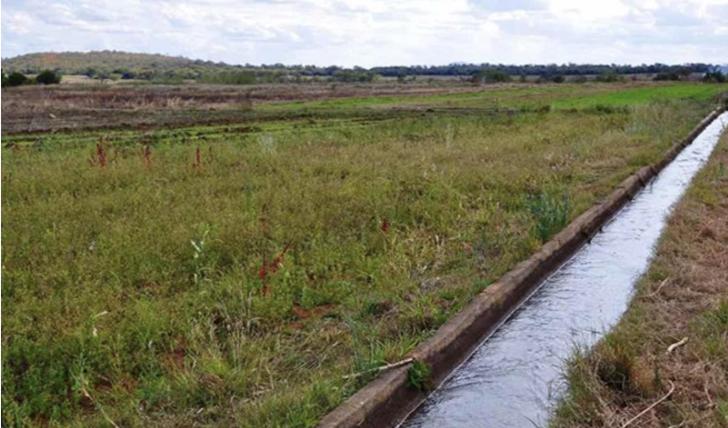News / Agriculture
Zinwa denies cutting water supplies to Silalatshani Irrigation Scheme
06 Dec 2023 at 08:59hrs |
598 Views

A spokesperson from the Zimbabwe National Water Authority (Zinwa), Marjorie Munyonga, has refuted allegations that water supplies to the Silalatshani Irrigation Scheme in Insiza, Matabeleland South province, were disconnected due to an outstanding bill.
Complaints arose on Monday from plot holders, asserting that their maize crops were withering prematurely after Zinwa allegedly cut off water supplies due to an estimated US$255,000 debt.
Contrary to these claims, Munyonga stated that the reduction in water levels at the Silalatshana Dam, which provides water to the irrigation scheme, was the actual reason. She clarified, "Silalatshani Irrigation Scheme holds a valid water abstraction agreement entitling it to water allocation from Silalatshana Dam, supplied by Zinwa. However, the water abstraction agreement is approaching expiration and requires renewal."
Munyonga elaborated on the potential challenges in renewing the agreement, citing the critically low water levels in Silalatshana Dam. She emphasized the dam's significance in supplying water to Zinwa stations like Colleen Bawn, underscoring the priority given to human life during periods of water scarcity.
"As of December 4, 2023, the dam was 40.4% full, necessitating careful consideration by Zinwa in water allocation and the acceptance of new water abstraction agreements," Munyonga added.
Farmers contended that water supplies were severed the previous month, disclosing, "They disconnected water to the irrigation scheme, and we were instructed to pay US$300 each by the end of this month. Silalatshani is the sole breadbasket of the area; if the water is disconnected, people will face starvation," expressed one farmer anonymously.
The Silalatshani Irrigation Scheme accommodates 853 farmers, each holding a maximum of two hectares. Additionally, Silalatshani Dam serves as a water source for JZ Moyo High School, Colleen Bawn town, and Ekusileni Mission.
Complaints arose on Monday from plot holders, asserting that their maize crops were withering prematurely after Zinwa allegedly cut off water supplies due to an estimated US$255,000 debt.
Contrary to these claims, Munyonga stated that the reduction in water levels at the Silalatshana Dam, which provides water to the irrigation scheme, was the actual reason. She clarified, "Silalatshani Irrigation Scheme holds a valid water abstraction agreement entitling it to water allocation from Silalatshana Dam, supplied by Zinwa. However, the water abstraction agreement is approaching expiration and requires renewal."
"As of December 4, 2023, the dam was 40.4% full, necessitating careful consideration by Zinwa in water allocation and the acceptance of new water abstraction agreements," Munyonga added.
Farmers contended that water supplies were severed the previous month, disclosing, "They disconnected water to the irrigation scheme, and we were instructed to pay US$300 each by the end of this month. Silalatshani is the sole breadbasket of the area; if the water is disconnected, people will face starvation," expressed one farmer anonymously.
The Silalatshani Irrigation Scheme accommodates 853 farmers, each holding a maximum of two hectares. Additionally, Silalatshani Dam serves as a water source for JZ Moyo High School, Colleen Bawn town, and Ekusileni Mission.
Source - Southern Eye
Join the discussion
Loading comments…































